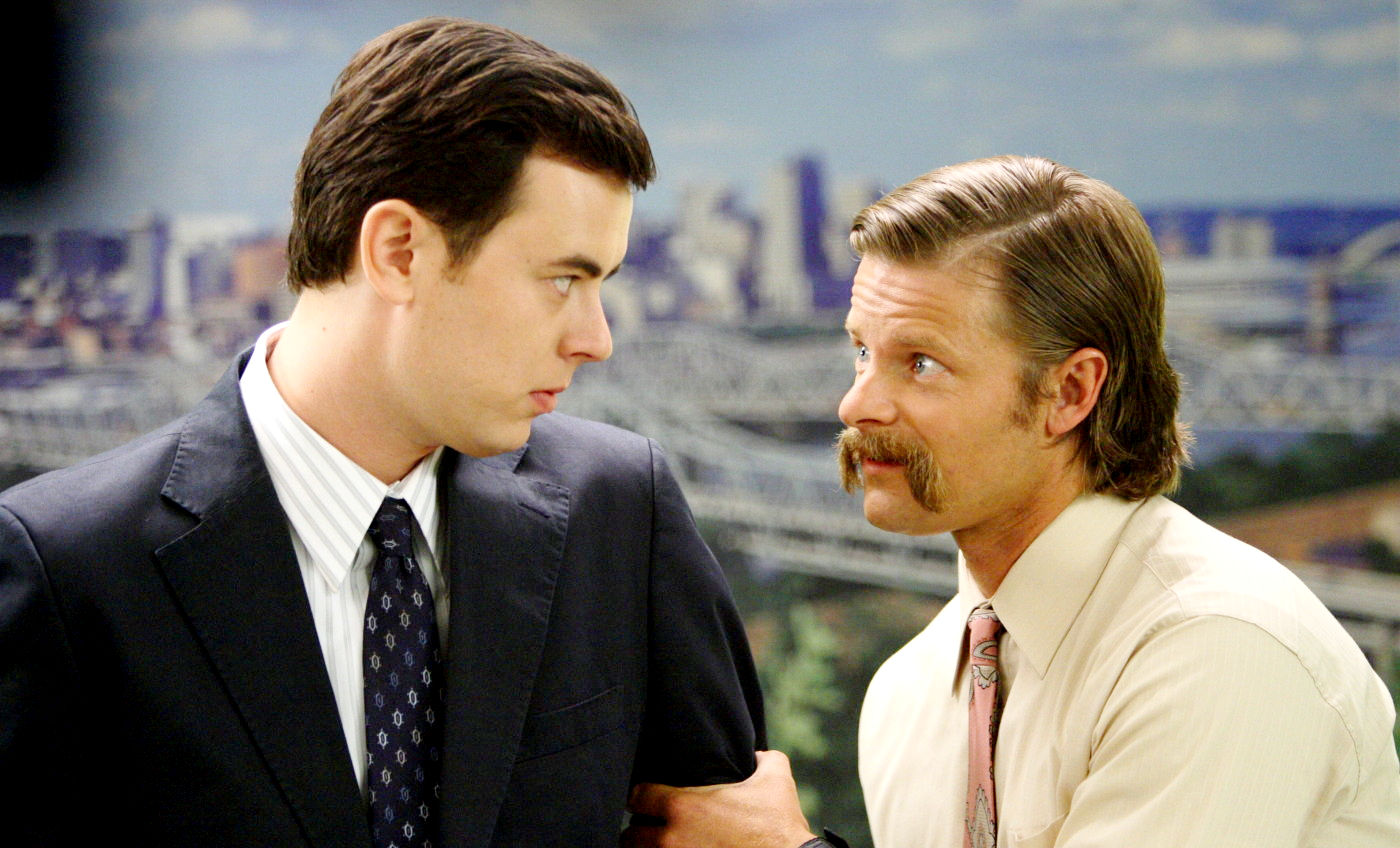
Your “indie” comedy (a real stretch in this case, but more on that later) is in real trouble if the eccentric, self-obsessed but completely unself-conscious character at the center of the protagonists’ orbit is, despite all of his incessant bullshit, move likable than the protagonist who allows us to glimpse into his world, one which resembles or re-imagines our own in such superficial and boring ways as to render the whole project impotent. That’s just one of the maladies afflicting the movie I’m going to attempt to review, one which recycles so many time worn cinematic clichés of the “mentor comedy” and the “showbiz comedy” that the references one could draw might produce enough footnotes to rival a dissertation. I’m too busy trying to recover my dignity as a film viewer to worry about it though.
Two essentially incompatible people – a young law school dropout who dreams of being a sitcom writer and an over the hill, barnstorming mentalist well past his The Johnny Carson Show days – conspire to bring the latter back from the obscurity of touring third class towns where no one has a clue what the difference between a magician and a mentalist is. Do you? I didn’t until I saw Sean McGinly’s basically harmless but nonetheless infuriating comedy The Great Buck Howard – it was basically the only insight in this thoroughly unimaginative and trite tale, other than that Cincinnati, if you look real close, has palm trees. Or that people in the industrial Midwest wear bolo ties. I could go on, but clearly authenticity wasn’t a word Sean McGinly learned in grade school and I have no desire to teach him here.
John Malkovich hams it up and has enough unimpressive scenery to chew on for a whole franchise as the always ready to fly off the handle and just slightly effeminate title character, the type of person who gets pissed when his assistant spends too much money tipping the room service guy, who has a crush on George Takai and a grudge against Carson successor Jay Leno that gives his life meaning, purpose and clarity. His career on its last legs in the wake of a parodic and unseemly portrait in Entertainment Weekly, the mentalist attempts to put nine hundred people to sleep in a Cincinnati hotel lobby in order to, well, bring attention to himself. The local media, which in this top fifty American TV market only consists of four guys with SDXs, all flee to the traffic accident caused when ex mayor Jerry Springer, who doesn’t live in the city at all anymore, has an accident on Columbia Parkway, the wide boulevard which separate the CBD from the ghetto. Perhaps it’s beside the point, but I think not: this is clearly “Anytown USA” for these filmmakers, not a real place. The brief plot point involving the road and the ex mayor turned sleazoid talk show host are the only actual aspects of the city’s history, its placeness, that find their way into McGinly’s neatly packaged recyclable of a film. The filmmakers couldn’t be more tone deaf and condescending.
Colin Hanks meanwhile, as his Howard’s young assistant Troy, turns in a performance that is the most stringent cinematic argument against nepotism since Francis Coppola cast his daughter in The Godfather Part III. On the surface, Colin has the same everyman quality that propelled his father to stardom, but its only skin deep – when he opens his mouth, he speaks with a meek, deflated, just removed from ironic pitch that immediately pegs him as milquetoast. Produced by Daddy Hanks’ Playtone outfit, Colin even gets an arc in which his actual father, playing his character’s father as some sort of big wig who wants him to go into entertainment law instead getting coffee for a has been mind reader, embodies everything he doesn’t want to be but must prove himself to first. A performance that is all static, straight man reaction shots and feeble, “gee I’m smarter than this blowhard and all the yokels who still go to his shows” asides never once draws out even a smidgen of genuine laughs.
As his love interest the lovely Emily Blunt doesn’t fair much better, handing in a two note performance as a pretty but equally superficial publicist, this one unlucky enough to follow Buck on his last stand for a return to “stardom” in Cincinnati. Steve Zahn shows up too, playing one of his vast collection of cinematic idiots – he also gets to sport the unfortunate bolo tie, as if private car drivers in Ohio cities were members of the Nevada Gaming Commission. Of course, the filmmakers would have never known – this entire regrettable enterprise was filmed in the city of Angels. This so called “independent” film (Magnolia… c’mon), for which the producers had the audacity to show up at Sundance and demand eight figures from distributors until it became clear the market of 2008 would not support it, is just another example of Hollywood being able to double for any place in our fantasies and incapable of being any place worth visiting in reality.